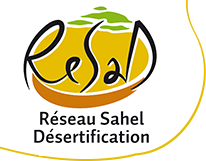Fao's work on agroecology

Présentation du document
Today’s food and agricultural systems have succeeded in supplying large volumes of food to global markets, but there is categorical evidence that they cannot deliver sustainable development for all. Almost three-quarters of the estimated 815 million hungry people in the world are food producers who make their living from agriculture, fisheries and forestry. Deforestation, water scarcity, biodiversity loss, soil depletion and high levels of greenhouse gas emissions are among the major challenges faced by the planet, as identified in the targets and goals of the 2030 Agenda for Sustainable Development.
Malnutrition affects a third of the world, constituting a massive cost to health budgets in countries across the globe. Agroecology offers a unique approach to meeting the needs of future generations while ensuring no one is left behind. With food producers at its heart, agroecology seeks to transform food and agriculture systems, addressing the root causes of problems and
providing holistic and long-term solutions based on knowledge-sharing and innovation. Featuring cases in different sectors and countries around the world, this publication introduces the agroecology approach to linking food, livelihoods and natural resources, presents the 10 Elements of Agroecology, and looks at ways of scaling up the people-centred approach to ensure its potential impact is fully realized, promising a brighter future for all.
Publications du même éditeur

Improving governance of pastoral lands

La gouvernance foncière des biens communs

Ecosystèmes et bien-être humain

